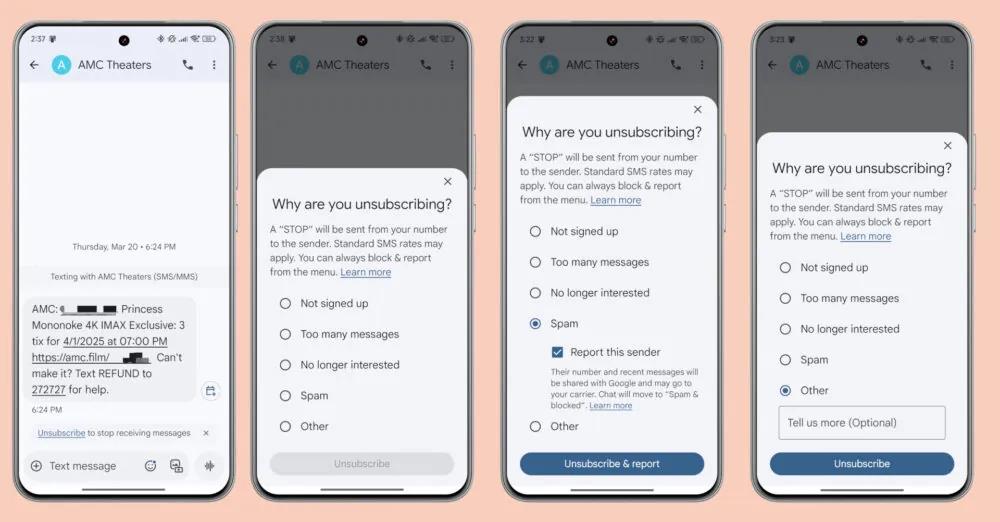Unlocking Marketing Success: A Strategic Guide for Small Businesses
In today’s competitive landscape, small businesses must navigate the complex world of marketing to maximize their return on investment (ROI). A recent strategic guide emphasizes the importance of selecting the right marketing channels to ensure effective outreach and customer engagement. Key Takeaways Understand your market and customer needs before selecting marketing channels. Develop a robust go-to-market strategy to guide your marketing efforts. Focus on a few effective channels rather than spreading your budget too thin. Establish a measurement framework to evaluate the performance of your marketing initiatives. The Importance Of A Go-To-Market Strategy Launching a product successfully requires more than just a great idea; it necessitates a well-thought-out go-to-market strategy. This strategy should address: Market Considerations: Identify where your product will be sold and who your competitors are. Customer Considerations: Define your ideal customer and understand their decision-making process. Product Considerations: Clarify how your product serves customers better than alternatives. By answering these questions, businesses can create a clear roadmap for their marketing efforts. Crafting A Content Strategy Once the go-to-market strategy is in place, the next step is to develop a content strategy. This involves: Determining how and when to provide valuable information to your target audience. Tailoring content types to the preferences of your audience, whether they prefer short videos or in-depth articles. A well-defined content strategy ensures that your marketing messages resonate with potential customers. Choosing The Right Marketing Channels Marketing channels can be categorized into two main types: organic and paid. Organic Channels Search Engine Optimization (SEO) Content Marketing Email Marketing Social Media Marketing Word-of-Mouth Marketing Paid Channels Influencer Marketing Online Advertising (e.g., social media ads, pay-per-click) Offline Advertising Partnership Marketing Businesses should prioritize channels based on where their target customers are most active and engaged. Scaling Your Marketing Team As businesses grow, so should their marketing team. Initially, founders may handle marketing tasks, but as the company expands, it’s crucial to hire specialists. Key roles to consider include: A marketer with a blend of strategy and data analysis skills. Content creators who can produce engaging material. Performance marketers to optimize paid campaigns. Investing in the right talent is essential for sustained marketing success. Establishing A Measurement Framework To ensure long-term success, businesses must establish a measurement framework that includes: Setting Marketing Goals: Define what you want to achieve, whether it’s brand awareness or conversions. Identifying Key Performance Indicators (KPIs): Metrics like conversion rates and customer acquisition costs are vital. Establishing Benchmarks: Set realistic performance benchmarks based on industry standards. Consolidating Marketing Data: Use tools to track performance across channels. Assigning Attribution: Determine how to credit various marketing efforts in the customer journey. A robust measurement framework allows businesses to make data-driven decisions and optimize their marketing strategies effectively. In conclusion, small businesses can significantly enhance their marketing effectiveness by following a structured approach to channel selection, content strategy, and performance measurement. By focusing on a few key channels and continuously evaluating their performance, businesses can ensure they are not just building great products but also successfully reaching their target audiences.

In today’s competitive landscape, small businesses must navigate the complex world of marketing to maximize their return on investment (ROI). A recent strategic guide emphasizes the importance of selecting the right marketing channels to ensure effective outreach and customer engagement.
Key Takeaways
- Understand your market and customer needs before selecting marketing channels.
- Develop a robust go-to-market strategy to guide your marketing efforts.
- Focus on a few effective channels rather than spreading your budget too thin.
- Establish a measurement framework to evaluate the performance of your marketing initiatives.
The Importance Of A Go-To-Market Strategy
Launching a product successfully requires more than just a great idea; it necessitates a well-thought-out go-to-market strategy. This strategy should address:
- Market Considerations: Identify where your product will be sold and who your competitors are.
- Customer Considerations: Define your ideal customer and understand their decision-making process.
- Product Considerations: Clarify how your product serves customers better than alternatives.
By answering these questions, businesses can create a clear roadmap for their marketing efforts.
Crafting A Content Strategy
Once the go-to-market strategy is in place, the next step is to develop a content strategy. This involves:
- Determining how and when to provide valuable information to your target audience.
- Tailoring content types to the preferences of your audience, whether they prefer short videos or in-depth articles.
A well-defined content strategy ensures that your marketing messages resonate with potential customers.
Choosing The Right Marketing Channels
Marketing channels can be categorized into two main types: organic and paid.
Organic Channels
- Search Engine Optimization (SEO)
- Content Marketing
- Email Marketing
- Social Media Marketing
- Word-of-Mouth Marketing
Paid Channels
- Influencer Marketing
- Online Advertising (e.g., social media ads, pay-per-click)
- Offline Advertising
- Partnership Marketing
Businesses should prioritize channels based on where their target customers are most active and engaged.
Scaling Your Marketing Team
As businesses grow, so should their marketing team. Initially, founders may handle marketing tasks, but as the company expands, it’s crucial to hire specialists. Key roles to consider include:
- A marketer with a blend of strategy and data analysis skills.
- Content creators who can produce engaging material.
- Performance marketers to optimize paid campaigns.
Investing in the right talent is essential for sustained marketing success.
Establishing A Measurement Framework
To ensure long-term success, businesses must establish a measurement framework that includes:
- Setting Marketing Goals: Define what you want to achieve, whether it’s brand awareness or conversions.
- Identifying Key Performance Indicators (KPIs): Metrics like conversion rates and customer acquisition costs are vital.
- Establishing Benchmarks: Set realistic performance benchmarks based on industry standards.
- Consolidating Marketing Data: Use tools to track performance across channels.
- Assigning Attribution: Determine how to credit various marketing efforts in the customer journey.
A robust measurement framework allows businesses to make data-driven decisions and optimize their marketing strategies effectively.
In conclusion, small businesses can significantly enhance their marketing effectiveness by following a structured approach to channel selection, content strategy, and performance measurement. By focusing on a few key channels and continuously evaluating their performance, businesses can ensure they are not just building great products but also successfully reaching their target audiences.








































































































































































![[The AI Show Episode 143]: ChatGPT Revenue Surge, New AGI Timelines, Amazon’s AI Agent, Claude for Education, Model Context Protocol & LLMs Pass the Turing Test](https://www.marketingaiinstitute.com/hubfs/ep%20143%20cover.png)






































































































































![From drop-out to software architect with Jason Lengstorf [Podcast #167]](https://cdn.hashnode.com/res/hashnode/image/upload/v1743796461357/f3d19cd7-e6f5-4d7c-8bfc-eb974bc8da68.png?#)













































































































-11.11.2024-4-49-screenshot.png?width=1920&height=1920&fit=bounds&quality=70&format=jpg&auto=webp#)























_jvphoto_Alamy.jpg?#)




.png?#)






















































































![Refresh your iPhone in style with the TORRAS Ostand Fitness case [15% off]](https://i0.wp.com/9to5mac.com/wp-content/uploads/sites/6/2025/04/TARROS.webp?resize=1200%2C628&quality=82&strip=all&ssl=1)














![Apple Debuts Official Trailer for 'Murderbot' [Video]](https://www.iclarified.com/images/news/96972/96972/96972-640.jpg)
![Alleged Case for Rumored iPhone 17 Pro Surfaces Online [Image]](https://www.iclarified.com/images/news/96969/96969/96969-640.jpg)

![Apple Rushes Five Planes of iPhones to US Ahead of New Tariffs [Report]](https://www.iclarified.com/images/news/96967/96967/96967-640.jpg)






























































































































